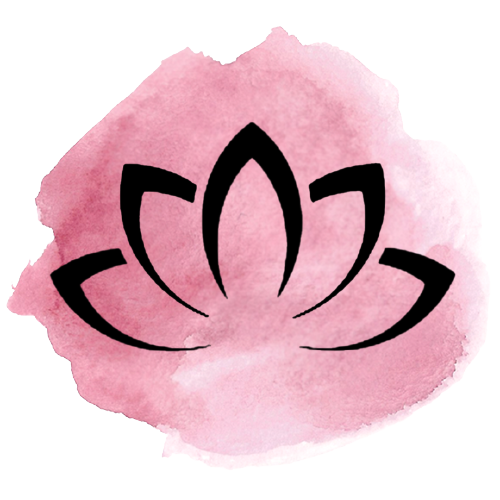How I Learned to Balance Filipino Traditions and My Modern Identity
As the only girl among four siblings, I’ve always felt a sense of being damaged. My parents, immigrants from the Philippines, have worked tirelessly throughout their time in America. In addition to being the only girl, I’m also the youngest of three brothers. People often say, “You’re so lucky,” or “You’re the baby of the family.” However, they fail to recognize the anxiety and burden that comes with it. While I deeply love and am profoundly grateful for my family, the topic of intergenerational trauma is always present.
Whenever I argued with my mom, she would often reference how her own mother raised her to justify her reasoning. While I sometimes wanted to point out that those circumstances were from an entirely different country and generation, it was difficult to challenge cultural expectations. Specifically, Filipino culture often clashes with modern ideals. Despite the rise of feminism in today’s world, at home, I am still scolded whenever my behavior isn’t considered “ladylike.” I’ve always found it unfair that I was expected to learn how to cook and clean while my brothers weren’t. Yet, in the end, how could I argue against a culture with traditions that date back hundreds of years? Traditional Filipino values often emphasize family honor and resilience. While these can be sources of strength, they can also pressure individuals to suppress emotions, leading to unresolved trauma. I had to realize that growing up in the Philippines shaped my parents to be extremely cautious and guarded. The burdens that their families put on them were passed down from generation to generation, and as a result of being surrounded by an entirely different society, it’s mentally difficult for this generation of Filipino-American children to navigate that process.
Young Lauren Closas and her mom in the Philippines
In modern movies, the theme of “chasing your dreams” is a common narrative. While this notion may seem passionate and inspiring, it can also be viewed as “selfish” in Filipino culture. After all, how can you build financial security by pursuing what you love if it doesn’t generate substantial income? Filipino parents, like many immigrant parents, often have high hopes for their children. They view success through a particular lens, usually involving stability, respect, and achievement in traditionally respected fields like medicine, engineering, or law. On the other hand, today’s society encourages people to seek happiness and passion, often challenging the idea that financial stability should be the sole measure of success. To be more specific, growing up, I always loved dancing and joined multiple dance teams in high school. While my parents respected my passion for dance, they often reminded me that it would inevitably be useless to continue investing time in it after graduation. Although I never intended to pursue dance as a career, I still felt a lack of support for something I was deeply passionate about. Now that I have graduated, I miss dancing more than anything. However, I understand that, deep down, my parents wanted me to focus my efforts on a career path they believed would provide me with security, such as nursing. I had to realize that despite our differences, their expectations came from a desire to provide better opportunities than they had growing up.
The struggle to balance both worlds is perhaps the most difficult part of growing up in an immigrant household. On one hand, we carry the pride of our Filipino heritage like celebrating family gatherings, honoring elders, and maintaining the cultural customs that define us. On the other hand, we are constantly navigating a society that may not always embrace or fully understand our cultural background. This duality often leads to being caught between two worlds. At home, we are expected to adhere to Filipino traditions, maintain strong family ties, and show respect for authority. However, in the wider society, we may be torn between wanting to fit in with our friends and peers while still trying to honor our parents’ values. For instance, during high school, I often experienced a profound sense of isolation compared to my friends, who enjoyed the freedom to go out independently. In contrast, I was rarely granted such privileges. While I recognized that my parents' strictness stemmed from their concern for my safety, it was challenging for me to reconcile with their perspective. My thoughts were consumed by the opportunities and experiences I felt I was missing in my personal life.
It might be easy to conclude that Filipino traditions are simply wrong, but that isn’t the point. The goal is to acknowledge the struggles many Filipinos of this generation experience, so they know they’re not alone. This isn’t about placing blame on parents. Many Filipino immigrant parents face significant financial hardships and job insecurity, leading to stress and anxiety. These challenges often create a cycle of worry that children inevitably absorb, affecting their mental health and shaping their outlook on life. Despite the many conflicts my parents and I have faced, I now understand that it all comes from a place of love and a desire for me to succeed in life. As Asian Americans, learning to overcome these differences starts with fostering open communication, practicing empathy, and finding a balance between honoring cultural traditions and embracing modern values.
ABOUT LAUREN CLOSAS
Lauren Closas is a nursing student at Southwestern College, is a part of the Sangam Learning Community, and taking Asian American Media & Film with Prof. J.A. Ruanto Ramirez. Closas is a resident of Otay, South San Diego.


